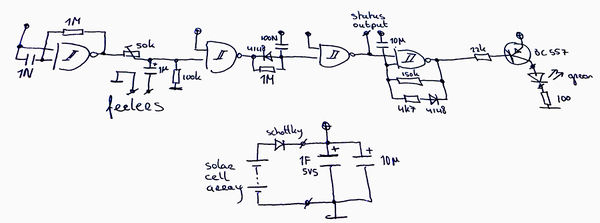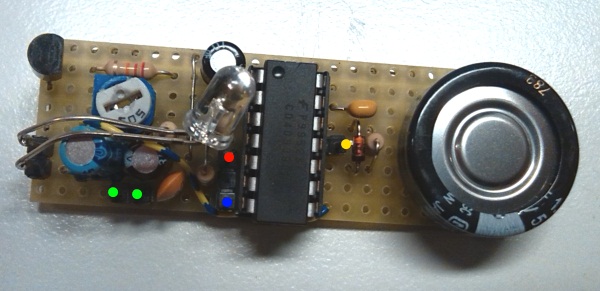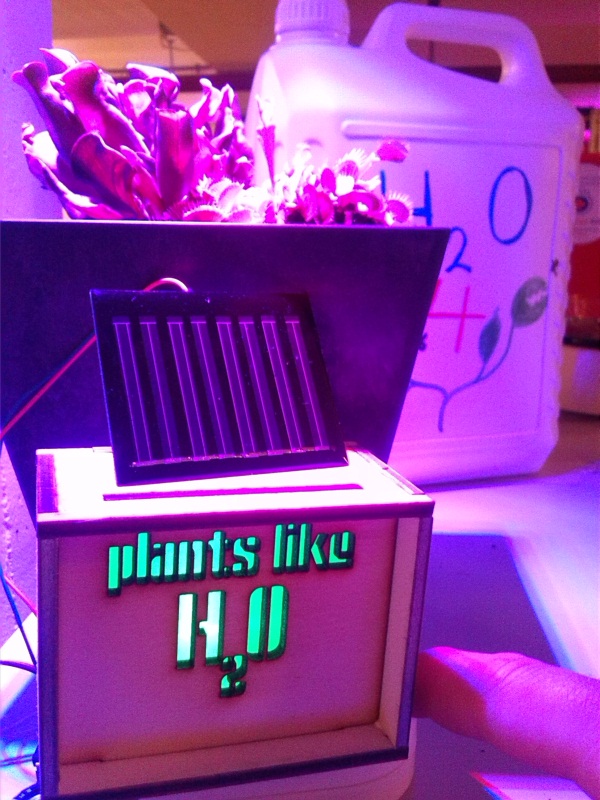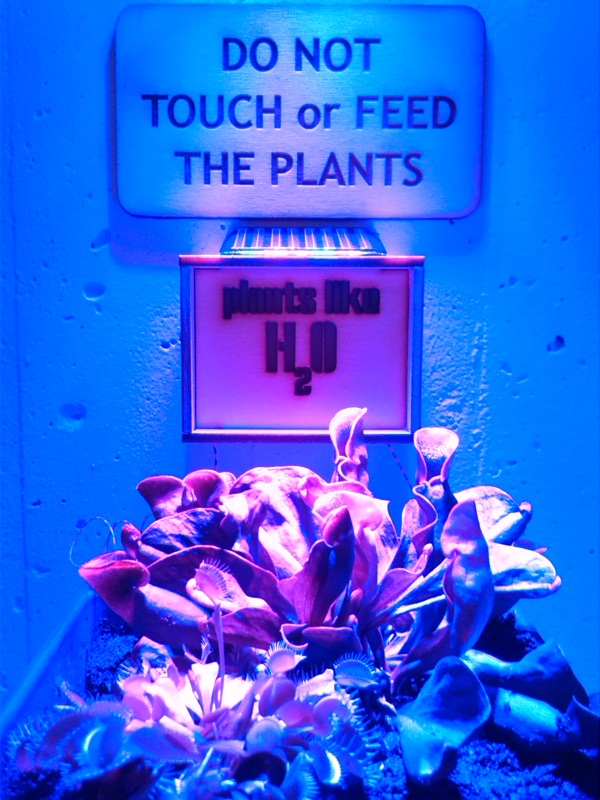Space a no fly zone
Plants are not always nice (to flies)
| Project Space, a no fly zone | |
|---|---|
| Status | Completed |
| Contact | benadski |
| Last Update | 2016-02-15 |
UPDATE: In an epic battle both of the sides have lost many if not all, the fruit flies are gone, but the plants died as well... New plants have arrived but have none of the fighting skills of the carnivorous brothers. They might have other secret weapons we do not know about. We'll see what happens next.
The fruit flies that live at RevSpace have broken many of the house guidelines...
- Guests are welcome, but must be accompanied by a member.
- No member has claimed to let them in...
- Respect fellow members, their privacy and their hardware.
- They show no respect whatsoever...
- No sleepovers, no drugs, no alcohol abuse.
- They are beer addicts and sleep at the space...
Measures taken:
- We have asked them nicely to leave, no answer and totally ignorant.
- We tried to force them out, but they always find a way to get past us.
- (Tried) killing them. Sometimes drastic measures are taken by people driven insane. But even that didn't scare the surviving buggers.
So we paid large amounts of cash for some professional killers to do the job for us. These killers do have some requirements. They need chemicals like H2O, H2SO4 and CO2. Also they need blue and red energy rays. The food was not a problem they said.
Tech involved:
A simple plant moisture detector from Ebay does not work very well for a long period. The feelers are fed with DC, this destroys them over time and leaves nasty metals in the soil.
Solution:
First we need AC for the feelers, a simple oscillator and a capacitor will do, the potentiometer is added in series to regulate the current through the soil and sets the sensitivity. The NAND on the left is used as an oscillator. The next NAND detects if the voltage has dropped below the Schmitt-trigger threshold or not. If not, the soil is too dry and the output is pulsing low. To get rid of nasty pulses a diode detector is used. The next NAND buffers and inverts the signal. Here we have a nice continuous HIGH level when the soil is too dry and a LOW when it's nice and wet. The last NAND sends short pulses to the transistor which drives the LED, but only when the plants need water!

^^The circuit is not very power hungry, but if you increase the resistor values by a factor 10 (not the 22k and 100 Ohm resistors) and decrease the caps by a factor 10 you might get a 24h working apparatus (not tested).
Throw it together:

Lasercut a case and add to plant:


To do:
- Add a microcontroller and spam the IRC channel when the killers are thirsty!